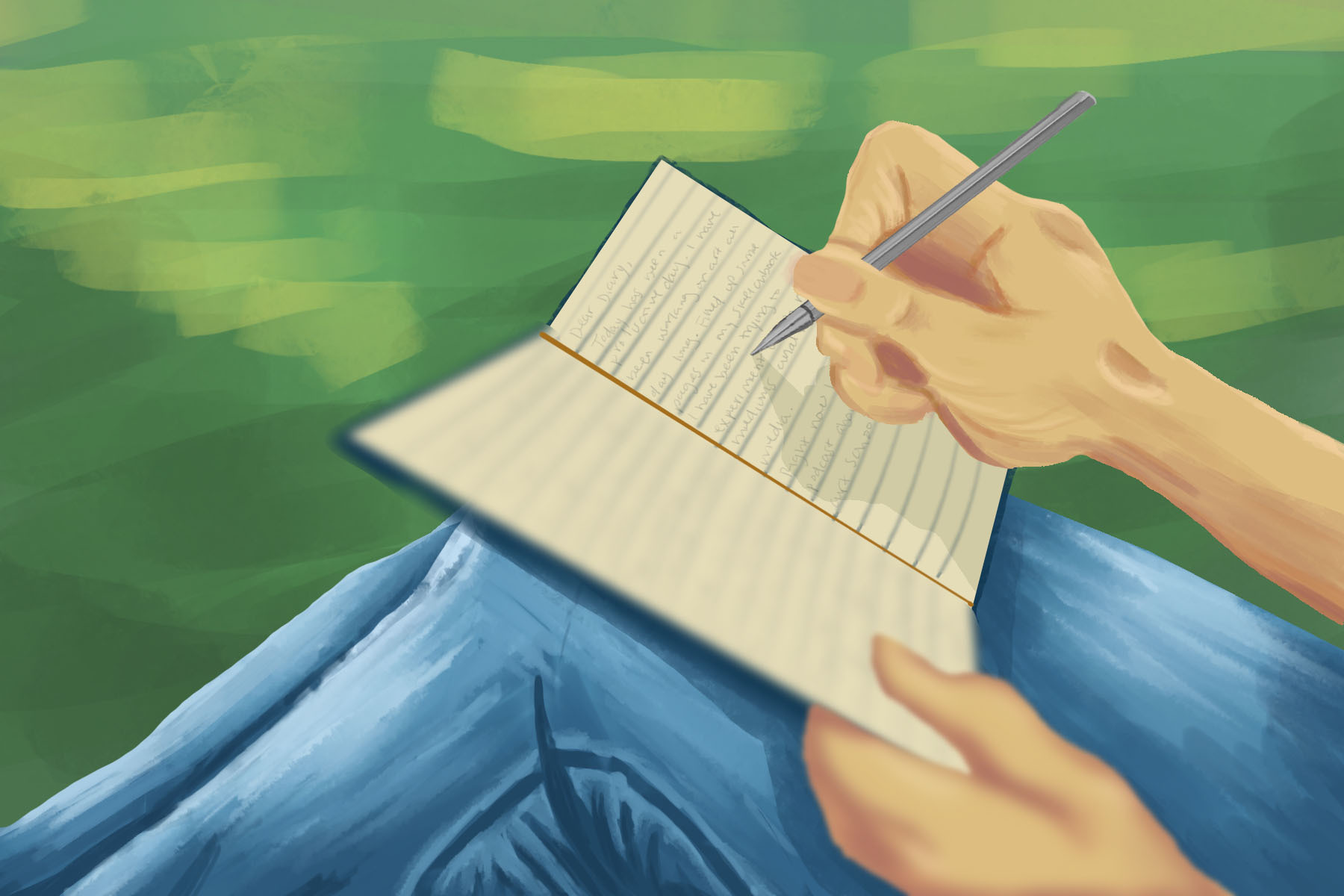The year was 2009. I brought my scrapbook paper-covered composition notebook everywhere, my very private journal “for my eyes only.” You know, to record the many trials and tribulations of a third-grade life: “Today, Grace and I were in a fight. I drew a mustache in her yearbook because her brother has one and Ms. S told the whole class not to draw mustaches in each other’s yearbooks. It was just a joke. I didn’t mean to get her in trouble but she gave me a dirty look and we didn’t play jump rope together at recess.”
Whether it was the “Dear Dumb Diary” series or my other friend’s super cool Hannah Montana diary (with a lock!), journaling was a popular trend when I was a kid. We soon grew out of that phase, but reflecting back, our elementary selves may have been onto something (or maybe, I’m just regressing … I’ll write about it to try to unpack that one).
Flash forward to 2020 and my “diary” entries are looking a bit more like: “I’m feeling stressed. I don’t know why I always procrastinate my work. I have time to get things done on my days off but I end up being distracted and I can’t focus and then I end up saving things to the last minute and then I scrunch them into my schedule. I don’t know. Do I simply work better under pressure or is that just an excuse that I always make because I’m scared of starting. Whatever. I just need to get better at concentrating but idk where to begin.”
We’ve all been there, feeling absolutely overwhelmed trying to balance packed schedules, facing a particularly stress-inducing class or feeling down for no foreseeable reason. Recommended to me by my therapist, cathartic writing is a simple tool for coping with overwhelming feelings of anxiety and stress.
Catharsis plays a pivotal role in psychology and is from the Greek word “kathairein,” meaning “to purify, cleanse, or purge.” Catharsis is the act of finding relief through an emotional release. Psychoanalyst Josef Breuer, a colleague of the more widely renowned Sigmund Freud, used the term to describe the release of emotions people felt after hypnosis-induced reenactments of their trauma. While Breuer’s method of invoking catharsis is no longer used, “catharsis” remains in the psychologist’s vocabulary.
Cathartic writing is the act of simply letting your stream of consciousness spill onto paper. Writing while overwhelmed or after a challenging event can help release feelings and thoughts you don’t want to admit to yourself or others you trust. Unfiltered writing is the key — any thought that pops into your head whether it makes sense or not or whether it is full of cuss words is fair game.
Letting out these feelings and admitting some uneasy truths cleanses your emotional side. Emotions have an opportunity to escape rather than be suppressed; silenced fears, doubts and frustrations will build up and manifest themselves in negative ways, often leading to a volcano moment. Acknowledging your emotions validates them as it allows you to experience thoughts fully.
The way in which cathartic writing allows us to make sense of our emotions relates to the use of different parts of the brain. When the brain processes emotions, it engages the limbic system. When we physically put pen to paper, we use many other parts of the brain, such as the Broca’s area for the visual word form, the cerebellum for fine motor skills and the auditory lobe for the way we “hear” our internal dialogue as we write.
When multiple areas of the brain are engaged to process thoughts and emotions, we are better able to interpret them than if we only use the limbic system. The same idea applies to why we tend to remember information better when we write notes.
After you write, it’s important to return to your pages and read them over to learn something new. Maybe take a break. Spend the day doing something else to calm down and go back later on, but don’t forget about your notes entirely.
Reading my entries after I finish them is the part I struggle with the most because I want to put the thoughts away and not deal with them after. Sometimes, that’s okay. But other times, it is necessary to return to understand your cluttered thoughts and fears. Reading over your cathartic writing gives you the opportunity to view yourself from a new perspective. You may find that once you’ve calmed down, your original doubt or fear has dissolved and you can move beyond what upset you.
You may also be able to pinpoint a root cause of a reaction, allowing you to better understand yourself and change your approach next time. While I struggle to read my cathartic writing during or shortly after the stressor is occurring, I do enjoy looking back to what I wrote months after the events have passed. This experience is positive because it gives a window into the past. You can reflect and since you already know the story’s ending, you can appreciate the obstacles that you faced and have a reminder of your capabilities.
Of course, emotions are something you cannot control, but personally, I feel as though cathartic writing is a method of gaining some ground. No, I can’t help feeling anxious and powerless, but I can write about it. I can try to unpack why I feel the way I feel. It’s the ability to do something in response to something that happens, and that goes a long way when it comes to feeling in command.
Even if you don’t return to your thoughts and you stuff the notebook behind a bookshelf until the end of time, at the very least, by being honest and unreserved to the paper and yourself, you will experience emotional catharsis and relief.

















